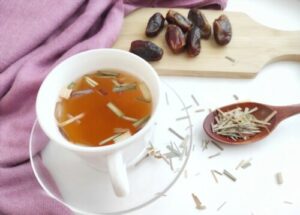 Winter has arrived and it’s doubtful that it will be in any hurry to leave again soon. With winter comes a variety of health issues. Coughs, colds, flu, blocked sinuses, in fact a vast array of respiratory ailments. Increased pain from arthritis due to the colder weather and dampness. Digestive issues due to an uptake of heavier and stodgier foods that we tend to eat during the winter season. Weight gain due to aforementioned heavier foods and possible lack of exercise. Depression due to the short days and lack of sunshine. Fatigue or general tiredness, again often caused by the shorter days which messes with our circadian rhythms and causes sleep issues, which can further impact on our health and lower our immunity since the body restores itself as we sleep.
Winter has arrived and it’s doubtful that it will be in any hurry to leave again soon. With winter comes a variety of health issues. Coughs, colds, flu, blocked sinuses, in fact a vast array of respiratory ailments. Increased pain from arthritis due to the colder weather and dampness. Digestive issues due to an uptake of heavier and stodgier foods that we tend to eat during the winter season. Weight gain due to aforementioned heavier foods and possible lack of exercise. Depression due to the short days and lack of sunshine. Fatigue or general tiredness, again often caused by the shorter days which messes with our circadian rhythms and causes sleep issues, which can further impact on our health and lower our immunity since the body restores itself as we sleep.
Correct hydration is often overlooked during the winter months but is very important as, together with proper nutrition, it helps the body to stay warm and healthy and is imperative to the body’s ability to prevent hypothermia. It’s all too easy to get dehydrated during the winter months when you’re constantly going from hot to cold and don’t notice the heat of the dry air inside, or think that you need much less hydration than during the hotter months when you’re losing fluids via sweat.
Does the ideal solution seem to huddle up under the duvet or in front of the fire until winter passes? Or sit in front of the fire sipping hot cocoa? Whilst cocoa does have some health benefits to it, it can also be extremely fattening and should be taken in moderation. So how about a healthy herbal alternative? Instead of rushing to the pharmacy to seek a remedy to your winter ailment, how about trying a delicious and nutritious herbal tea? Lemongrass tea is a great natural alternative to coffee or tea with it’s delicious citrus aroma and mild lemony taste. It is ideal to keep you adequately hydrated whilst simultaneously imparting a host of health benefits, in particular relating to winter health concerns and is a must for your natural winter health care plan.
 Why is lemongrass tea good for me?
Why is lemongrass tea good for me?
Lemongrass tea contains an abundance of vitamins, minerals and nutrients with an equally impressive amount of therapeutic properties. Additionally it also contains high levels of antioxidants, helping to neutralise harmful free radicals and protecting the body against oxidative stress and certain chronic diseases, whilst also boosting the body’s natural immune system. Who wouldn’t benefit from an enhanced immune system at this time of year!
What nutrients does lemongrass tea contain?
Lemongrass tea contains vitamins A, B1 (Thiamine), B2 (Riboflavin), B3 (Niacin), B5 (pantothenic acid), B6 (pyridoxine), B9 (Folate), C, plus manganese, iron, potassium , phosphorus, iron, magnesium, zinc, calcium, selenium, flavonoids, essential oils and phenolic compounds.
What therapeutic properties does lemongrass tea have?
Lemongrass tea has demonstrated antioxidant, anti-inflammatory, antiseptic, anti-bacterial, anti-fungal, anti-dyspeptic, antispasmodic, analgesic, antinociception, antipyretic, tranquillizer, anti-obesity, anti-nociceptive, anti-diarrheal, anti-hermetic and diuretic properties. That’s something not to be sneezed at where your winter ailments are concerned – pun intended!!!
Lemongrass tea combats the common cold and flu.
https://www.shutterstock.com/image-photo/sick-day-home-asian-woman-has-1199583907 Lemongrass tea is a perfect support tool to combat the common cold, flu & allergies. Working as expectorant, it loosens and expels mucus from the throat, whilst also reducing pain. The anti-inflammatory and muscle relaxant properties are able to relax the trachea and protect against coughing and irritation in the throat. Lemongrass also has the ability to reduce fever which is why it is also known as fever grass. It is also believed to be effective against staphylococci bacteria, otherwise known as strep throat. Steam from the tea can be extremely beneficial for the sinuses, helping to improve the flow of air within the nasal cavity.
Lemongrass tea helps in the relief of arthritis
Lemongrass tea is able to provide pain management by blocking or reducing pain receptors, whilst its anti-inflammatory properties simultaneously reduce swelling, thus helping in the relief of rheumatoid arthritis or any joint or muscle injury.
Lemongrass tea can help with weight loss/control
Lemongrass tea can help with weight loss and control thanks to the abundance of citral it contains. Citral prevents the accumulation of abdominal fat, improves energy levels and increases metabolism, thus stimulating the body to burn more fat. A study published in 2013 in the American Journal of Clinical Nutrition confirmed that polyphenols within lemongrass enhance the oxidation of fatty acids in the body. Lemongrass tea also helps with satiety and reduces hunger pangs. Additionally, as a natural diuretic it will eliminate excess fluid and prevent bloating.
Lemongrass tea supports a healthy digestion
 Lemongrass tea has a long tradition of supporting stomach issues. Drinking this tea before or after a meal helps to boost a more efficient digestion, increasing gastric mucus, and eliminating gastric irritation, gas, acid-reflux and bloating. It additionally protects the lining of the stomach, preventing its erosion from the digestive acids and lowering the risk of stomach ulcers developing, plus providing existing ulcers with the opportunity to heal.
Lemongrass tea has a long tradition of supporting stomach issues. Drinking this tea before or after a meal helps to boost a more efficient digestion, increasing gastric mucus, and eliminating gastric irritation, gas, acid-reflux and bloating. It additionally protects the lining of the stomach, preventing its erosion from the digestive acids and lowering the risk of stomach ulcers developing, plus providing existing ulcers with the opportunity to heal.
Moreover, lemongrass tea calms the digestive tract in the case of diarrhoea or cramps, alleviating spasms and pain, and eliminating harmful bacteria. It is also highly effective at reducing vomiting and nausea. Furthermore, it keeps the bladder and kidneys functioning correctly by acting as a diuretic. By removing toxins from the body and keeping the bowels working efficiently, lemongrass tea helps in the relief of constipation.
Lemongrass tea reduces stress, anxiety and depression
Lemongrass tea has a long history of use to treat and balance the mood. One of the compounds found in lemongrass, eugenol, stimulates the body to release more serotonin, also known as the happy hormone, and it is this that gives the tea it’s sedative properties, helping to calm the mind, diminish anxiety, stress and depression, uplift the mood and promote clear thinking. It will also relieve a stress headache. On an empty stomach in the morning, lemongrass tea invigorates, whilst last thing at night it acts as a relaxant. Just inhaling the aroma of the tea can help to calm the mind.
Lemongrass tea remedies sleep issues
 Lemongrass tea is an exceptional aid to sleep as it promotes the release of the hormone serotonin, and has a sedative effect, eliciting a sense of calm and well being, and inducing a great night’s sleep. As a relaxant it also calms the overworked nerves and muscles of the body and helps induce a deeper sleep, enhancing the quality and duration of sleep. While we sleep the body restores and repairs itself and strengthens the immune system so adequate sleep is of utmost importance. One study which took place in 2009 found that lemongrass tea can actually help to regulate sleep cycles, thus providing long-term benefits for sleep and the remedy of insomnia.
Lemongrass tea is an exceptional aid to sleep as it promotes the release of the hormone serotonin, and has a sedative effect, eliciting a sense of calm and well being, and inducing a great night’s sleep. As a relaxant it also calms the overworked nerves and muscles of the body and helps induce a deeper sleep, enhancing the quality and duration of sleep. While we sleep the body restores and repairs itself and strengthens the immune system so adequate sleep is of utmost importance. One study which took place in 2009 found that lemongrass tea can actually help to regulate sleep cycles, thus providing long-term benefits for sleep and the remedy of insomnia.
Want more benefits not specific to winter?
As if the benefits of indulging in this tasty tea during the winter months were not enough, lemongrass tea can benefit our health in further ways all year-round. Here’s a brief summary.
Increases the functioning of the cardiovascular system – Tests has shown that drinking lemongrass tea can moderately lower blood pressure and slow the heart rate to reduce undue stress on the heart. It can also reduce the accumulation of cholesterol within the blood vessels, alleviate inflammation in the arteries and veins, allow blood to travel easier, and lower the risk of a platelet buildup and subsequent clot within the blood vessel, in addition to preventing the dysfunction of cells inside the coronary arteries.
Improves/prevents anaemia – Research has concluded that drinking lemongrass tea daily can increase the red blood cell count, haemoglobin concentration and packed cell volume in the blood and improve or prevent anaemia.
Detoxifies the body – Drinking lemongrass tea flushes toxins, excess fluid and sodium from the body to cleanse, purify and stimulate the kidneys and liver, and reduce fat content in the body.
May inhibit cancer – Lab tests have indicated that lemongrass tea has the potential to inhibit the growth of cancers, which is attributed to the citral, geranial and chlorogenic acid which it contains, although further research is needed. It has also been recommended by oncologists to help suppress the formation of a secondary tumour during chemotherapy or radiation treatment.
 Soothes symptoms of PMS and menopause – Lemongrass tea has stomach soothing, muscle relaxant and analgesic properties and therefore is ideal for reducing the effects of PM. As a diuretic it can also deal with the issues of bloating and water retention which are often associated with menstruation. With properties which help to cool the entire body it is also useful for the relief from hot flashes during menopause. And it will help to eliminate mood swings caused by PMS or the menopause.
Soothes symptoms of PMS and menopause – Lemongrass tea has stomach soothing, muscle relaxant and analgesic properties and therefore is ideal for reducing the effects of PM. As a diuretic it can also deal with the issues of bloating and water retention which are often associated with menstruation. With properties which help to cool the entire body it is also useful for the relief from hot flashes during menopause. And it will help to eliminate mood swings caused by PMS or the menopause.
Enhances skin and hair health – Lemongrass tea improves blood flow which benefits the entire body both inside and out, and enhances the health of the skin and hair.
Protects oral health – The antibiotic, antimicrobial and antiviral properties within lemongrass tea help to reduce and protect against viral and bacterial diseases, and are great for oral health. This tea helps to protect against gum diseases such as gingivitis and periodontitis, eliminates bad breath and sweetens the breath after pungent food, is highly effective against streptococcus mutants bacteria which is the cause of most tooth decay and can also reduce the occurrence of fungal infections such as thrush.
Make lemongrass tea your beverage of choice this winter. Whilst you can rely on coffee, hot chocolate or even alcohol every once in a while to keep you warm, lemongrass tea will do the job equally as well, plus keep you happy and healthy at the same time. Anyone for tea?






